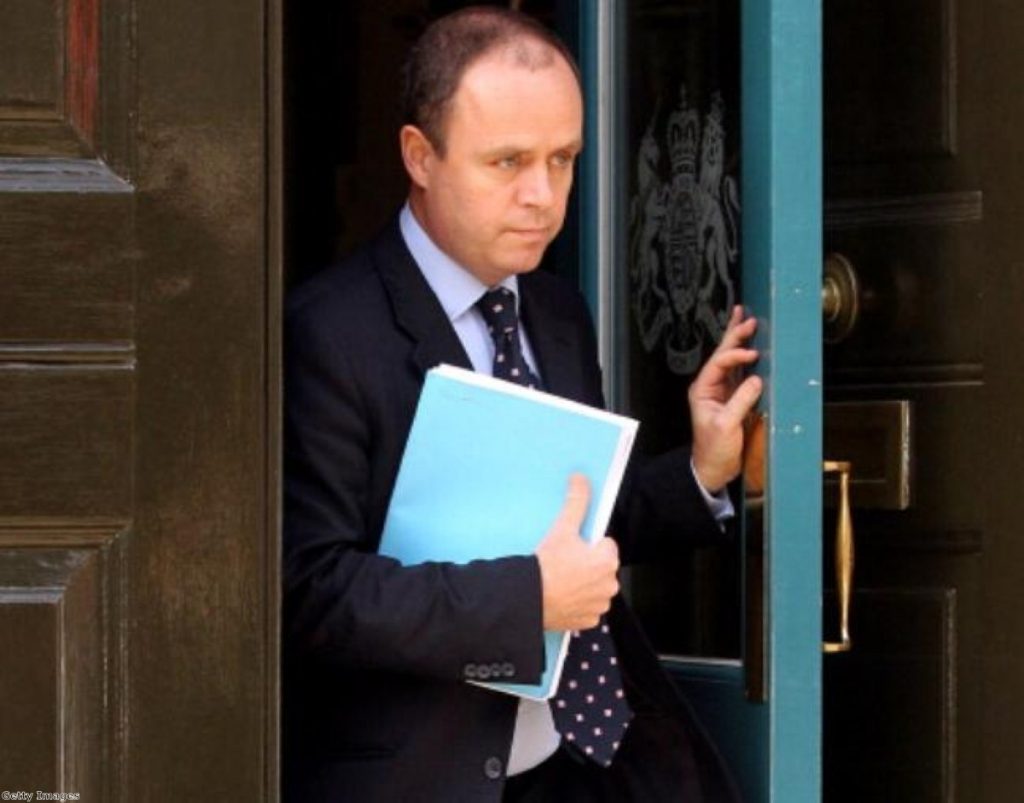John Yates becomes latest casualty of phone-hacking scandal
By Ian Dunt Follow @IanDunt
John Yates has become the latest casualty of the phone-hacking scandal, after handing in his resignation earlier today.
In a defiant and uncompromising statement the assistant Metropolitan police commissioner said: "There continues to be a huge amount of inaccurate, ill-informed and on occasion downright malicious gossip published about me personally.
"The threats that we face in the modern world are such that I would never forgive myself if I was unable to give total commitment to the task of protecting London and the country during this period. I simply cannot let this situation continue.
"I have acted with complete integrity and my conscience is clear. I look forward to the future Judge-led inquiry where my role will be examined in a proper and calmer environment and where my actions will be judged on the evidence rather than on innuendo and speculation as they are at present."
As Mr Yates' resignation statement was released, the Independent Police Complaints Commission (IPCC) announced it was starting an investigation into him.
His downfall followed reports that he had been tasked with due diligence checks on the employment of former News of the World deputy editor Neil Wallis, when Mr Wallis did communications work for the Met.
Some media sources reported that the IPCC investigation would look into allegations that Mr Yates secured a job for Mr Wallis' daughter at the Met.
Mr Yates is probably the best-known policeman in Britain, after he led the cash-for-honours investigation. He came in for considerable criticism after failing to re-open the investigation into phone-hacking in 2009 but refused to resign over the issue before MPs last week.
It is Mr Wallis' relationship with the Met which has triggered the resignation of both commissioner Sir Paul Stephenson and assistant commissioner Mr Yates, however.
Once Sir Paul Stephenson resigned yesterday it was only a matter of time before the focus returned to Mr Yates, who was already under intense scrutiny for his decisions on phone-hacking several years ago.
"Both decisions are regrettable but in both cases the right call has been made," London mayor Boris Johnson said after the news was released.
"The nexus of questions about the relations between the Met and News of the World was likely to be distracting for both officers in the run up to the Olympic games."
In a series of icy comments, Mr Johnson continued: "I was disappointed that we weren't told about the contract with the News of the World guy and I made my views known. That became clear to Sir Paul and Mr Yates.
"There was a discussion, we talked around the issues and the logic of the position was very clear to Sir Paul and once that logic was very clear to both of us I didn’t seek to dissuade him from it."
Both David Cameron and Mr Johnson effectively left Mr Yates without support this morning while the Metropolitan Police Authority (MPA) looked into his conduct.
Mr Cameron even went so far as to use the word "corruption" in relation to the Met today – the first time he chose to do so.
The thinly-veiled comments made it clear he did not enjoy the support of the government, City Hall or the MPA.
There was also pressure from the Commons, after Mr Yates was suddenly tabled to appear before the home affairs committee tomorrow to answer questions from MPs.
"The committee has recalled Mr Yates to give evidence tomorrow to clarify aspects of his evidence that he gave to the committee last week and following the statement of Sir Paul Stephenson," committee chairman Keith Vaz said.
When approached by Sky News crews this morning, Mr Yates said: "I have done nothing wrong. Give me a break".





-01.png)